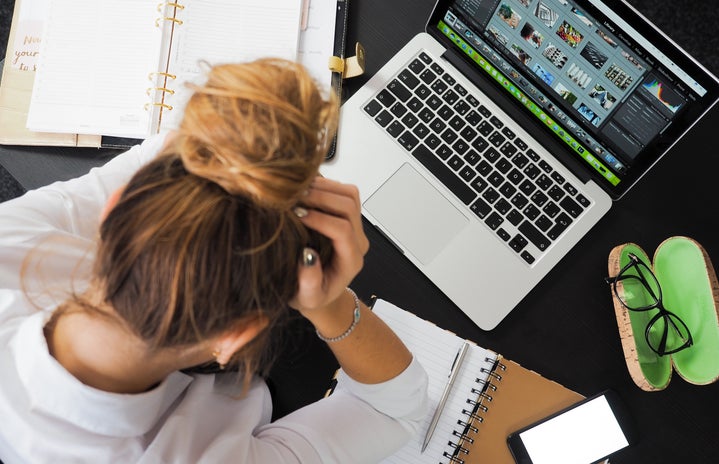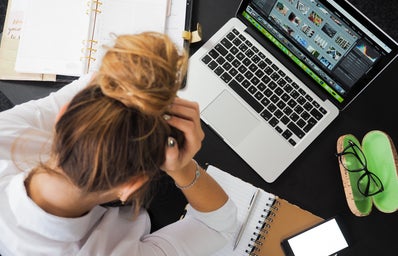As if being a student isn’t hard enough, adding an ongoing global pandemic to the mix has got people feeling overwhelmed and underprepared. So, what does it mean to burnout? After a year of creating a new normal in lockdown, we find ourselves feeling stressed and exhausted- both mentally and physically. You may feel as if your mental health is in a weird place right now and that’s extremely valid. We’ve gone from working remotely at home to slowly acclimating back to what life felt like before the pandemic. However, wearing masks all day and social distancing is a constant reminder of the continuing health crisis.
For university students, some of us find ourselves going back to our campuses whilst others are still learning online. Working towards a degree while feeling stuck in the same repetitive pattern of doing the same thing in the same place every day is not conducive to our mental health. When feeling burnt out it’s best to get a change of scenery: go for a walk in nature and see the sun shine, or get in the car and go for a drive. You could also catch up with friends to unwind. With many people feeling trapped inside, it’s important to remember that we don’t all have the same study spaces and access to resources. This leaves some of us feeling like we’re hit heavier than others. The pandemic has shown many people that mental health is an ongoing struggle. The past year in lockdown has brought about more understanding and empathy around these issues.
There have been many highs and lows that COVID-19 has brought us, with many feeling more lows than highs. However, a sense of togetherness has emerged with everyone feeling as though we are all on the same page. We’ve seen memes and tweets comparing how we felt at the beginning of lockdown versus now. An example of this is people being extra careful and safe a year ago, such as sanitizing every inch, to feeling burnt out and itching to take our masks off. This makes us feel as though we’re not alone; we’re all just figuring out how to navigate this new normal as we go along. After the past year felt like something out of a movie, it’s no wonder people are feeling fatigued and that it has taken a toll on our mental health. It feels as if every time we start to adapt to our current surroundings, something changes and there’s another new normal to understand.
It’s hard to wrap our heads around everything going on in the world right now. If you are one of those students who have been able to go back to their campus in person, you might be feeling a sense of subconscious anxiety with trying to be safe but wanting to enjoy your time outside. It’s a strange dynamic when you run into friends that you haven’t seen in over a year, but you can’t hug them and you have to greet with the infamous elbow shake.
Even if you have gone back to campus, it’s different because of the emptiness but you feel lucky to be back because you know not everyone has that opportunity. For those students who are still working from home, you might feel as though your mental health is restricted to the walls of your living space. We used to be able to separate work and home by relaxing and unwinding at home after being out at work or campus all day. Now however, after a year at home it feels as if at the end of a long work night you simply shut down your computer to walk a few steps to get into bed and call it a day. If you can’t distinguish your working place from your relaxing space, it’s no wonder that people feel stressed.
In times like these we need to live our lives with a glass half-full mentality and remember that there are ways to de-stress and unwind. Examples of these are yoga or meditation, watching an episode of your favourite series, calling up a friend and chatting, or even taking a quick nap. Another way to relieve tension is to journal and write down what you’re feeling, you can also get organised and create a timetable for yourself so you can break down the list of things you need to do and allocate times to do it in. Mental health and burnout are very prominent a year into the pandemic, but it is important to try to find the light at the end of this tunnel.


